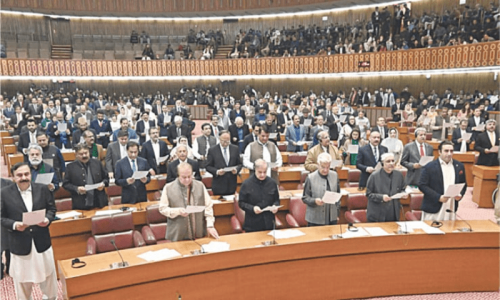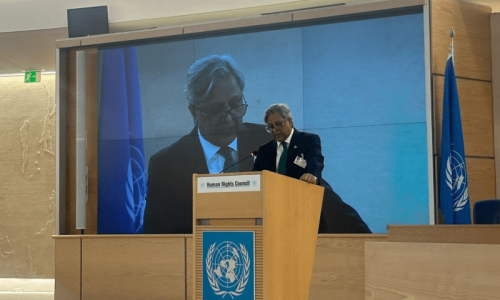ISLAMABAD: People must be given their right to peaceful assembly as per international standards set by human rights law while ‘archaic’ laws and policing strategies from the colonial era must be repealed.
This was highlighted in a study launched by the Human Rights Commission of Pakistan (HRCP) on Monday. The study is called ‘Freedom of Peaceful Assembly in Pakistan: A Legislative Review’.
It recommended to the legislature, executive as well as law enforcement agencies to ensure fulfillment of people’s right to peaceful assembly.
The HRCP, in carrying out the study, was assisted by a high-profile working group including Hina Jilani, Farhatullah Babar, Habib Tahir, Reema Omer and Saroop Ijaz. It was conducted by Asfandyar Warraich.
The right to peaceful assembly is a cornerstone of any democratic society, the study stated, providing an analysis of this right as enshrined in Article 16 of Pakistan’s Constitution.
Moreover, the HRCP was able to conduct a detailed mapping of assemblies from 2010 to 2020.
It was observed that disproportionate curbs were placed on at least 392 of the 858 assemblies surveyed. These curbs include excessive use of force, arbitrary and politically motivated arrests and detentions, registration of criminal or terrorism charges and the imposition of moratoriums on assemblies for extended periods of time for no valid reason.
The study proposes creation of better protocols for law enforcement agencies that involve training in human rights and crowd-management practices, with an emphasis on minimal use of force besides allowing unrestricted media and digital access to assemblies and facilitating free speech and movement for all rather than imposing content-based restrictions or blockading routes.
Published in Dawn, June 21st, 2022















































